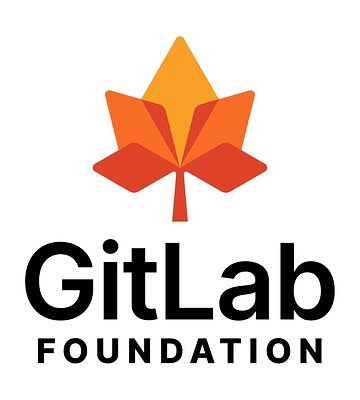
Beyond Charity: GitLab Foundation Bets Big on Measurable Economic Impact
A new philanthropic model is emerging, prioritizing quantifiable results over traditional giving. The GitLab Foundation aims for a 100x return on investment, raising questions about accountability and the future of social impact.
Beyond Charity: GitLab Foundation Bets Big on Measurable Economic Impact
NEW YORK, NY – November 20, 2025
The philanthropic landscape is undergoing a quiet revolution. While traditional charities often measure success in terms of services provided, a growing number of foundations are demanding quantifiable results, tying impact directly to financial returns. Leading this shift is the GitLab Foundation, an organization established in 2022 by the software development company GitLab Inc., and now doubling down on its ambitious goals with an expanded Board of Directors. The foundation aims to generate $25 billion in increased lifetime earnings for 1 million people by 2028 – a goal that some see as audacious, and others as a necessary step towards a more accountable and effective philanthropic sector.
A Novel Approach to Philanthropy
The GitLab Foundation isn’t simply writing checks. It’s betting on data, predictive modeling, and a remarkably specific metric for success: lifetime earnings. Unlike many foundations that focus on broad social outcomes, the GitLab Foundation explicitly targets economic mobility by investing in programs designed to boost individual earning potential. The foundation currently reports generating $6.03 billion in lifetime earnings increase from 78 grants, with total funds disbursed amounting to $21.5 million, and is seeking to scale its impact. “We’re trying to move beyond simply doing good to demonstrably proving what works,” says a source familiar with the foundation’s strategy. “The goal isn’t just to alleviate symptoms, but to create lasting economic change.”
This emphasis on measurable results has drawn praise from some corners of the philanthropic world. “There's a growing recognition that impact investing needs to be more than just feel-good philanthropy,” notes an expert in social return on investment. “Foundations need to be held accountable for the outcomes they achieve, and the GitLab Foundation is pushing the boundaries in that regard.” However, the foundation’s aggressive approach has also raised questions about the complexity of measuring social impact and the potential for unintended consequences. Critics argue that focusing solely on economic outcomes can overlook other important aspects of well-being, such as education, health, and social inclusion.
Board Expansion and Strategic Direction
The recent expansion of the GitLab Foundation’s Board of Directors signals a commitment to scaling its impact and solidifying its position as a leader in data-driven philanthropy. The appointment of Caroline Whistler, CEO of Third Sector Capital Partners, as Board Chair brings a wealth of expertise in outcomes-oriented contracting and pay-for-success models. Third Sector has a long track record of working with governments and non-profits to design programs that deliver measurable results. The addition of Benjamin Alex from the Gates Foundation further strengthens the foundation’s connections to a major player in the philanthropic world, while James Shen, GitLab’s Interim Chief Financial Officer, provides valuable insights into scaling financial operations.
“The new Board members bring a diverse range of skills and experience that will be invaluable as we work to achieve our ambitious goals,” says a source close to the foundation. “Caroline’s expertise in outcomes-based funding, Benjamin’s experience with large-scale social impact initiatives, and James’s financial acumen will all be critical to our success.” However, some observers have raised concerns about the potential for conflicts of interest given Shen’s dual role at GitLab Inc. and the GitLab Foundation. The foundation maintains that Shen’s presence on the Board will ensure alignment between the two entities while preserving the foundation’s independence.
Balancing Impact and Accountability
The GitLab Foundation’s ambitious $25 billion goal and its 100x return on investment target have sparked debate about the feasibility and ethics of quantifying social impact. While many agree that accountability is essential, some argue that focusing solely on economic outcomes can lead to a narrow and potentially biased assessment of success. “It’s important to remember that social impact is multi-dimensional,” says an impact investing expert. “Reducing it to a single metric like lifetime earnings can overlook other important aspects of well-being and potentially incentivize programs that prioritize economic outcomes over other important goals.”
The foundation acknowledges the challenges of measuring social impact and emphasizes its commitment to transparency and rigorous evaluation. It employs a comprehensive impact assessment framework that considers a range of factors beyond lifetime earnings, including job quality, skills development, and social inclusion. The foundation also publishes detailed reports on its impact, outlining its methodology, data sources, and key findings. “We’re constantly learning and adapting our approach,” says a source close to the foundation. “We’re committed to being transparent about our successes and failures and to sharing our learnings with the broader philanthropic community.”
Whether the GitLab Foundation can achieve its ambitious goals remains to be seen. However, its commitment to data-driven philanthropy and its focus on measurable impact are undoubtedly pushing the boundaries of the traditional philanthropic sector. The foundation's approach provides a potential blueprint for a new era of social impact, one where accountability and results are paramount.
